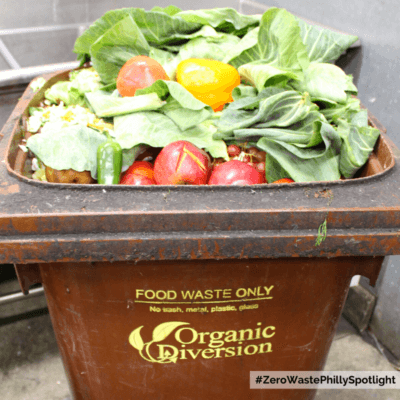In the ever-evolving landscape of modern business, the management of commercial waste stands as a critical aspect of sustainable operations.
Whether it’s a small business or a large corporation, the way we handle waste not only impacts the environment but also reflects our commitment to social responsibility and efficiency.
Effective waste management is no longer just a regulatory compliance issue. It is now a key factor in shaping a business’s public image and can lead to significant cost savings.
This guide offers a snapshot of key strategies in commercial waste management. This is critical for businesses intent on fortifying their sustainability and efficiency.
We delve into state-of-the-art disposal methods like Anaerobic Digestion (AD) for food waste, navigate the complexities of waste service contracts, unpack the significance of legal compliance in organic waste disposal, and the strategic use of radius provisions to extend the reach of food waste laws across state boundaries. Furthermore, we spotlight the role of community participation in waste reduction and discuss how businesses can reap economic rewards by adopting sound waste management practices.
Accompanied by detailed PDFs, each section guides in tackling the multifaceted aspects of waste management. As we progress, we invite you to join us in leveraging commercial waste handling for sustainable growth and enhanced community well-being.
Modern Methods for Processing Waste
Anaerobic Digestion (AD) represents a frontier in waste management technology, especially for handling food waste. This section delves into the intricate workings of AD, a process that biologically breaks down organic material in the absence of oxygen, transforming waste into biogas and digestate. Moreover, AD is particularly significant for its dual benefit: it not only reduces the volume of waste but also creates renewable energy. Additionally, we explore different types of AD systems, with a focus on their application in the Northeast U.S., where they have gained substantial traction.
This document includes case studies demonstrating the successful implementation of AD technologies, highlighting their operational models and the benefits reaped. For businesses grappling with large volumes of organic waste, understanding AD technology is crucial in harnessing its potential for both waste reduction and energy production, marking a significant stride towards sustainability in commercial waste management.
Best Practices for Contracting Waste Services
Effective waste management begins with the right contractual agreements. This document provides businesses with comprehensive guidance on setting up and managing contracts for waste disposal services. It covers key considerations like service costs, pickup schedules, container sizes, and handling contamination, ensuring that businesses can negotiate contracts that align with their specific waste management needs.
We also tackle the need to grasp and follow local and state waste rules. Talking clearly with waste haulers is key — it makes waste services work better. This document is great for any business that wants to get their waste contracts right and cut costs.
Legal and Practical Aspects of Organic Waste Management
Managing organic waste is both a hands-on task and a legal matter. Our document dives deep into laws about organic waste bans and recycling. It looks at how these laws come to life and what they mean for businesses and towns. Real case studies show these laws at work, with all their ups and downs.
Additionally, it highlights strategies for public awareness and technical assistance, essential for effective implementation of organic waste policies. For businesses navigating the complexities of organic waste regulations, this section offers valuable insights and practical advice to turn these legal requirements into opportunities for improved waste management practices.
Crossing State Lines: Getting the Most Out of Radius Provisions in Food Waste Disposal Laws
The “Crossing State Lines” document is progressive in its take on food waste laws. It illustrates how Connecticut and Rhode Island have made a bigger environmental mark by using composting sites across state lines. This method not only boosts regional teamwork but also offers a model for others to follow. Furthermore, the document features Rhode Island’s efforts as a key example, highlighting the significant advantages of working across borders. Such policies lead to more recycling and help the organic waste industry grow, emphasizing the importance of collaboration between states to achieve environmental goals.
Community Engagement in Waste Management
The role of community involvement in effective waste management is often underestimated. However, this document underscores the importance of community engagement, particularly in integrating food waste into yard trimmings composting operations. Additionally, it provides a step-by-step guide for assessing a composting site’s readiness for adding food waste, including considerations for space, equipment, and regulatory compliance.
Furthermore, the section also delves into the best practices for composting food waste, collection and hauling considerations, and navigating through the regulatory landscape. By highlighting the economic and operational aspects of community composting initiatives, this section serves as a testament to the power of collective effort in enhancing waste management practices at the community level.
The Business Case for Reducing Waste
Moreover, reducing waste is not just an environmental imperative but also a smart business decision. This final document of our guide focuses on the economic and environmental benefits of minimizing food waste in the business sector. Additionally, we showcase real-life success stories of companies that have effectively implemented waste reduction strategies, revealing the tangible benefits these practices bring.
Furthermore, this document gives businesses real ways to cut down on food waste. These include tracking waste, improving food prep, and controlling portion sizes. Additionally, it points out helpful resources and tools for implementation. For companies wanting to save money and help the planet, it makes a strong case. Ultimately, adopting waste reduction is a smart business decision.
Download Resources


